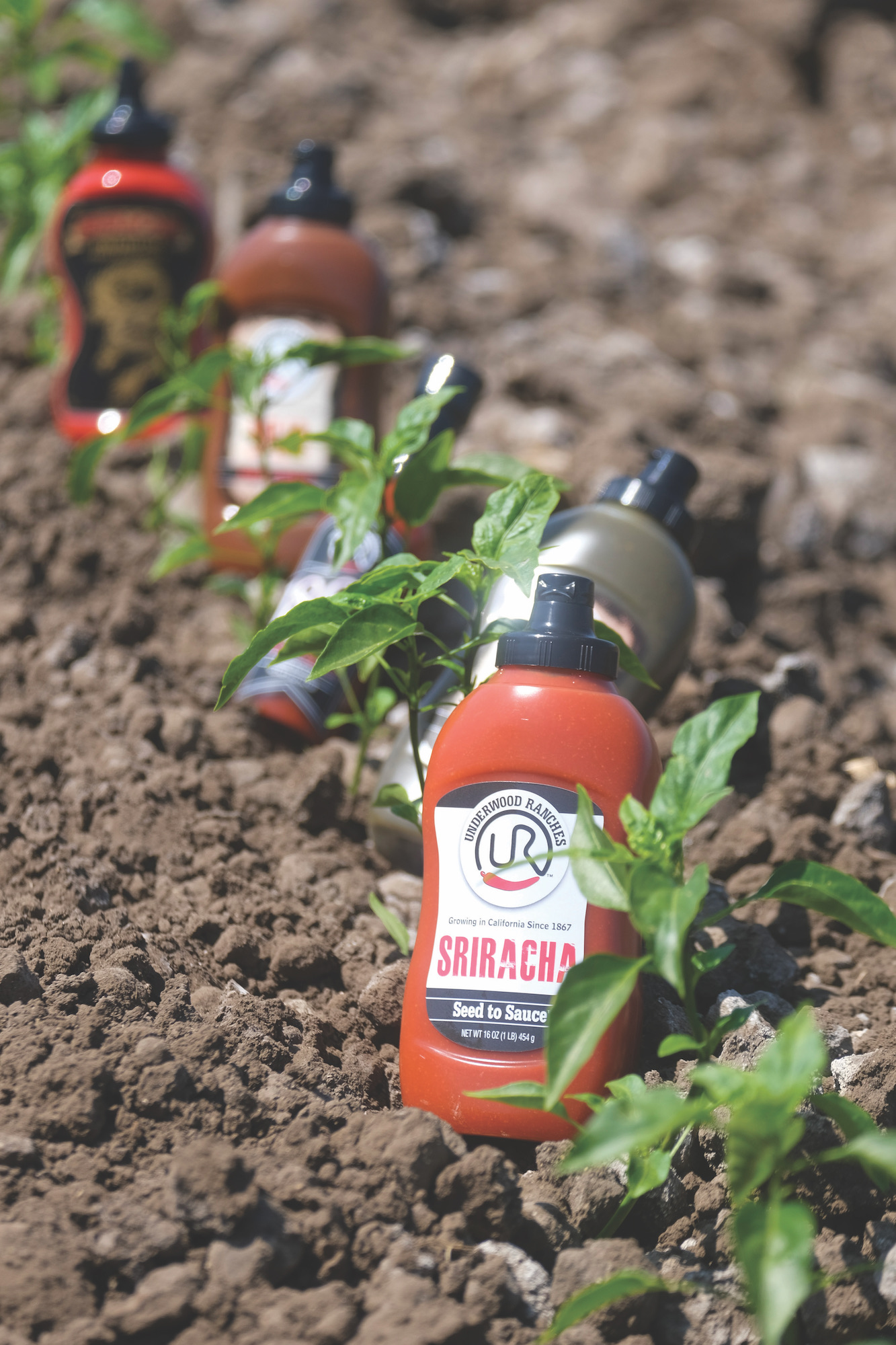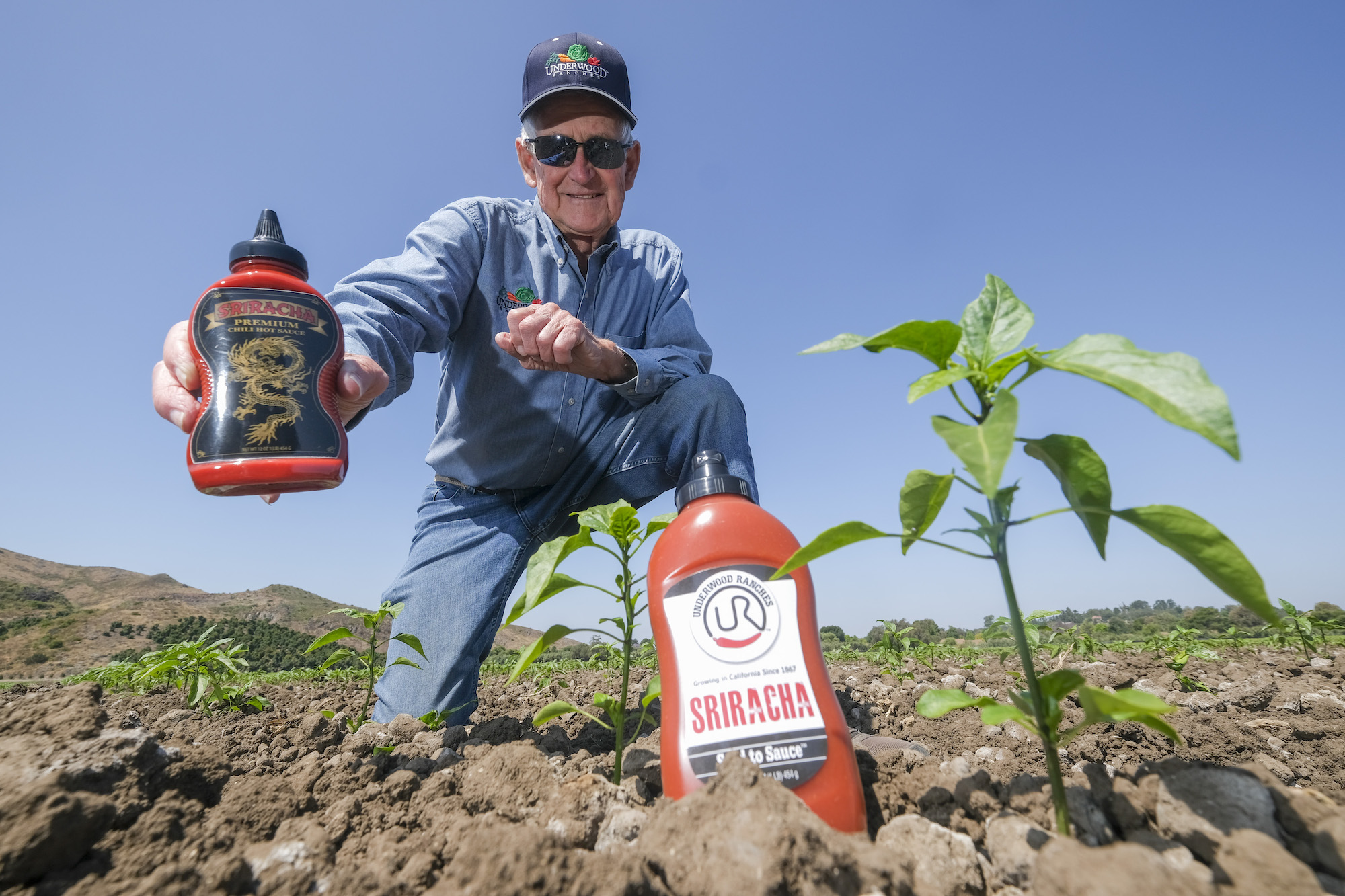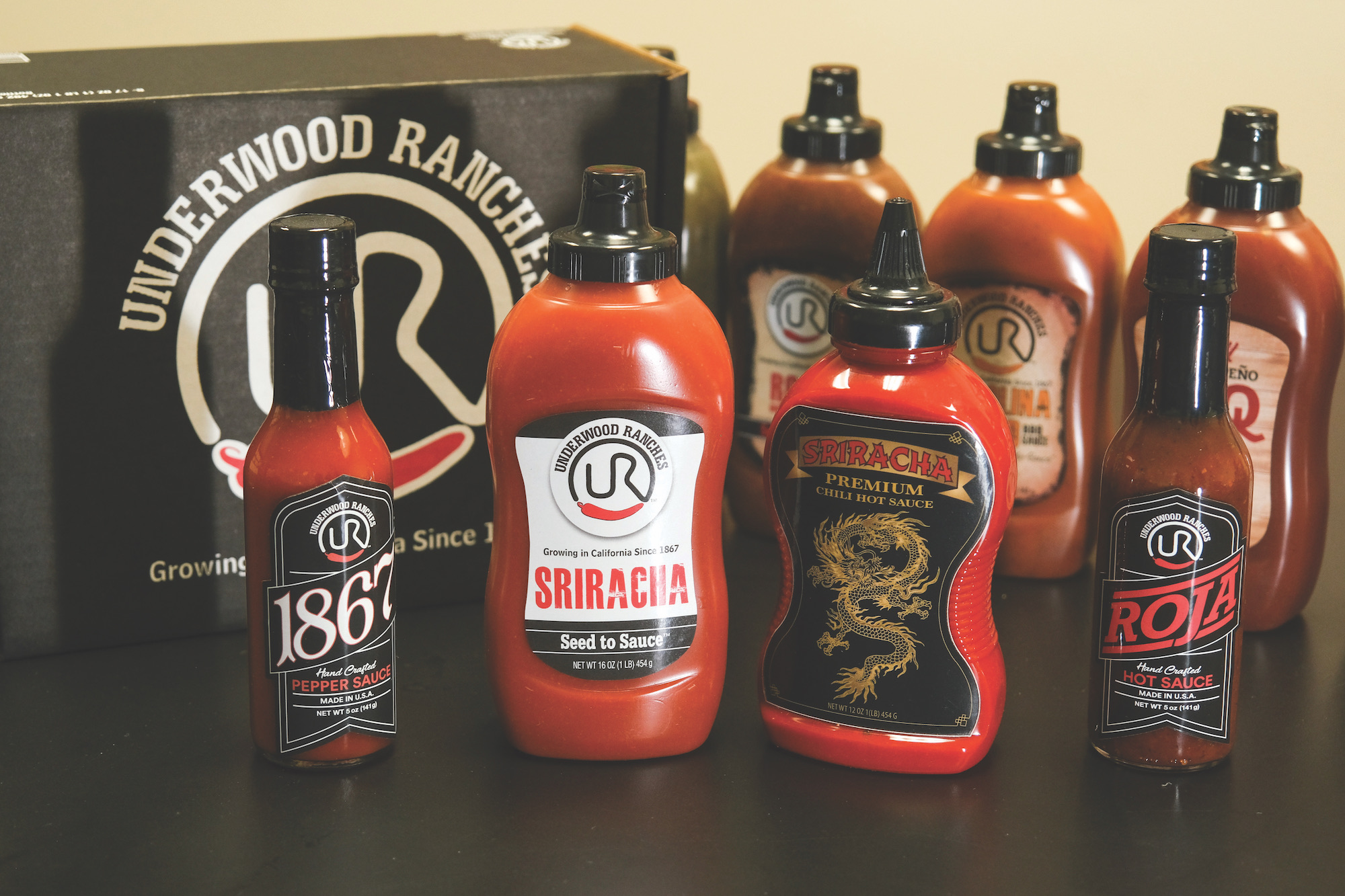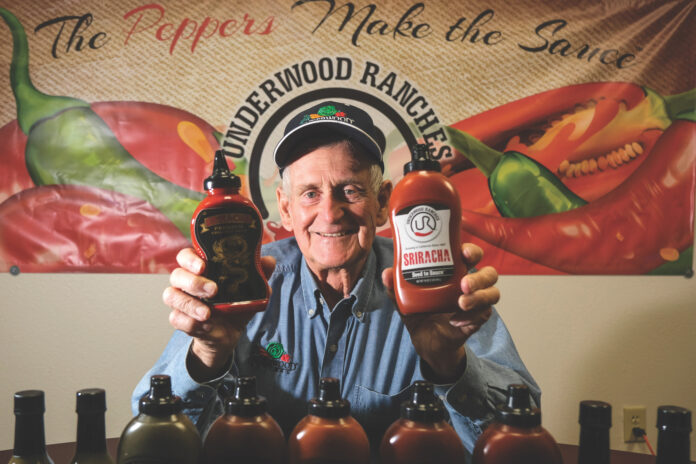Craig Underwood nearly lost his Camarillo-based Underwood Ranches until a litigation financier stepped in. Once the sole jalapeño pepper provider for the manufacturer of the popular Sriracha hot sauce, Huy Fong Foods Inc., Underwood Ranches’ revenue stream was completely upended when the business relationship broke down into a lawsuit in 2017.
The company’s heated dissolution with Huy Fong left 1,700 acres desolate, and mounting pressure to pay suppliers. Despite a jury awarding Underwood $23.3 million in 2019, an appeal by Huy Fong prevented its payout. It was then that Underwood agreed to a $4 million lifeline from Burford Capital LLC — even if it meant ultimately repaying double that amount.
“That may seem like a very high rate of pay for us, but it came at a time when we desperately needed the money,” Underwood said. “And, frankly, we couldn’t have gone to a bank.”
The Second Appellate District Court affirmed the jury’s decision, and Burford took $8 million from the award — a double return on investment that amounted to nearly a third of the award money.
Litigation finance deals like Underwood’s are increasingly under attack. Several states have moved to limit legal funding’s discretion in court and in California, a bill introduced this year targets outside investors in lawsuits.
After bringing his business back from the brink of collapse, Underwood now tells his story to advocate against growing calls to regulate the industry.
David vs. Goliath

The family-owned farm exclusively picked the red jalapeños defining Huy Fong’s green-capped Sriracha sauce for almost 30 years. As the product grew in popularity, Underwood expanded its pepper fields to 2,000 acres at one point, the largest operation of its kind in the United States. His farm has since grown to 3,000 acres.
It was a fruitful business relationship, until Huy Fong accused Underwood of overcharging the company for growing costs following the 2016 harvest. The hot sauce manufacturer sued for the $1.45 million overpayment, and Underwood countersued for $20 million, for breach of contract and for financial losses.
In June 2019, a jury found Huy Fong had breached its contract and committed fraud by intentionally misrepresenting information. Underwood Ranches’ leaders testified that the partnership dissolution triggered a financial earthquake, bringing on more than $8 million in losses in 2017 alone. The $23.3 million jury award could have dug Underwood Ranches out of their financial hole then, but Huy Fong’s appeal punted the money down the line.
The Sriracha manufacturer beefed up its legal resources, adding counsel from Latham & Watkins, one of the largest law firms in the world. Underwood’s lawyers knew the ranch could possibly be forced to fold before the trial and referred him to Burford Capital.
The New York-based firm offered non-recourse financing to bridge the gap between Underwood’s trial and ultimate recovery. If Huy Fong won, Burford would lose its investment at no cost to Underwood.
According to Underwood, the appellate didn’t know Underwood Ranches received litigation financing, and he’s glad they didn’t.
“I wouldn’t want our opposition to know the position that we were in,” Underwood said. “That we were needing to give up so much in order to get money that we desperately needed to operate.”
After the Second Appellate District Court affirmed the jury’s decision, Burford took $8 million from the award— a double return on investment with nearly a third of the award money.
Litigation finance’s growth

Burford champions the Underwood Ranches case as an example of how litigation financing can even the playing field. In a time when legal fees easily reach into the millions and litigation drags on for years, corporate cases can drain small businesses’ resources and ultimately force “the little guy” to accept low-ball settlements.
When offering non-recourse financing, Burford justifies its high interest rates due to legal risk. Maintaining a 90% success rate with its investments, the company assesses whether their investment will make a return in a potential award, like in Underwood’s case.
“There were real risks in the case,” said New York-based director Andrew Cohen. “That’s sort of how we looked at it when we did the diligence on it, and then we negotiated terms with Craig based on that assessment.”
Founded in 2009, Burford now has more than $5.8 billion invested in a large portfolio of cases around the world. With law firm billing rates and litigation expenses growing more expensive, the litigation finance industry continues to expand.
According to a 2022 market survey from Westfleet Advisors, a litigation advisory firm, there are 44 active funders in the United States with a combined $13.5 billion assets under management. That represents a 9% increase from the combined $12.4 billion in 2021.
Regulatory pushback

After a decade with no regulatory oversight, the U.S. Chamber of Commerce and other critics have pushed for tighter scrutiny on the burgeoning industry. The business lobby says the opaque nature of funders’ legal involvement allows investors to manipulate litigation processes in order to drive up financial returns.
While legal funding firms often offer legal advice to their clients, Cohen maintains Burford does not control litigation and clients can deny their consulting services.
“Those criticisms are usually being put forth by folks who are upset that legal finance helps claimants get the result that they should be able to get,” Cohen said.
The Chamber’s Institute for Legal Reform, the business lobby’s advocacy arm for litigation regulations, publishes research calling for regulation of lawsuit funders, citing potentials like foreign enemy investment or endangerment of attorney-client privilege. Their argument outlining a court system converted to a trading floor has influenced lawmakers.
Wisconsin, New Jersey and, most recently, Montana, passed laws mandating the disclosure of third-party litigation funding arrangements in court. On June 15, a Louisiana bill requiring commercial legal financing for plaintiffs only was vetoed by Gov. John Bel Edwards. In his veto, Edwards wrote large corporations and insurance companies could “exploit their newfound knowledge of an individual or small business’s litigation budget.”
In California, The Predatory Lawsuit Lending Prevention Act, SB 581, was introduced in February by Sen. Anna Cabellero with language requiring financing details to be disclosed in court. While in committee, the bill dropped its finance-disclosure mandate to focus on capping interest rates for consumer litigation funding— also known as pre-settlement lenders targeting personal injury cases.
When walking back the bill’s scope, Cabellero said the law now aims to prevent predatory lending and allow business-to-business transactions, protecting cases like Underwood’s from disclosure but still capping non-recourse financiers charges at 36% of the original payment. The bill is now held under submission in the Senate Appropriations Committee.
Almost two years after his lawsuit win and the Burford deal closed, Underwood hopes his story can chip away at mandatory disclosure language in legislation.
“I’m perfectly happy with what we did,” Underwood said. “And I don’t mind supporting (Burford) in their efforts because I think it’s important that the little guy is not exposed.”
